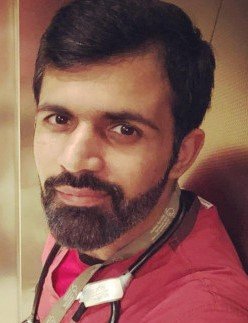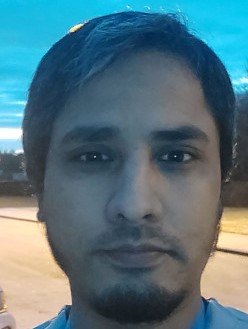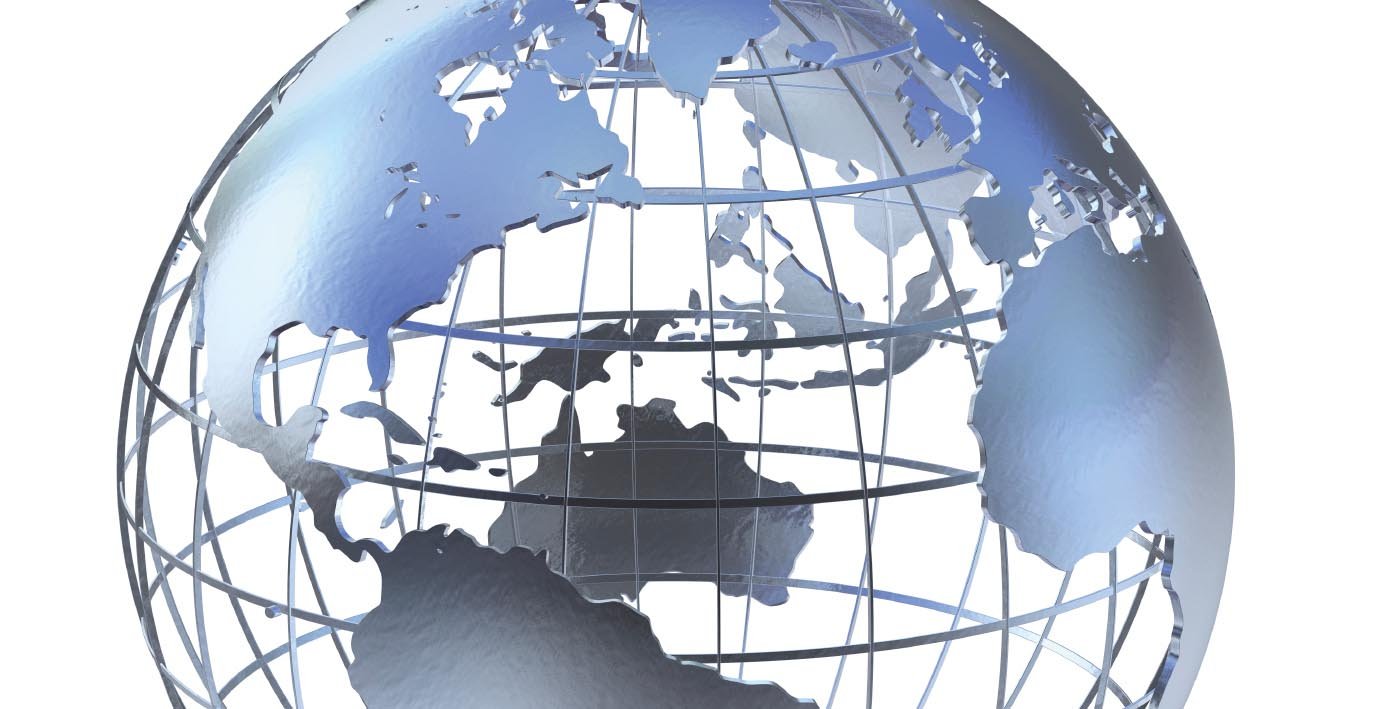The IMO and IHCA have stated their support for expedited processing of doctors’ citizenship applications, which are often taking two years or more to process.
The matter has recently been highlighted by international doctors in the context of migrant healthcare workers’ ongoing contribution to Irish society during the Covid-19 pandemic.
The doctors are calling for recognition of the efforts of migrant healthcare workers through timely processing of applications.
“It will be a good gesture from the Government to boost confidence and morale,” stated paediatric infectious diseases registrar, Dr Mohsin Kamal, originally from Pakistan and living in Ireland for five years.
Dr Kamal said there are “many” benefits to obtaining citizenship, including job security, family stability and equal access to postgraduate medical training positions.

‘Backbone’
According to a petition started by Dr Kamal, which has gained almost 1,000 signatures, immigrant healthcare workers are the “backbone” of the Irish healthcare system, particularly in the current pandemic when some have tragically lost their lives.
Dr Kamal’s messages about the campaign have attracted substantial support on Twitter.
He told the Medical Independent (MI) it appeared that doctors from Pakistan faced particularly lengthy processing times, compared to doctors from some other countries, and it was unclear why this was the case.
“Their applications take at least three years and could take up to four years,” stated Dr Kamel. This is additional to the required residency period of five years in order to be eligible to apply for citizenship.
“I think the doctors and nurses from Pakistan have a very good character, and the Government should not take very long to verify that,” he reasoned.
There are incidences where applications are returned to the sender, after lengthy periods, due to small errors that have been made by the applicant, according to Dr Kamal. “One of my friends applied 18 months ago and they returned his passport but then they kept his application on the waiting list and after 18 months they picked one mistake on his dates, and returned his application and asked him to send the application again,” explained Dr Kamal, who said his friend had to return to the very beginning of the list.
Training access
Doctors who obtain citizenship have equal access to training positions. The postgraduate training bodies are required under EU law to prioritise EU nationals.
Dr Kamal has extensively highlighted the lack of access to training positions for candidates from outside the EU. He has also asked for clarity from RCPI on why it removed (without explanation) an exemption to basic specialist training (BST) which was being applied to non-training scheme doctors who met particular criteria. MI has sought comment from RCPI on this matter, but it has not responded to date.
Neonatology registrar Dr Liqa ur Rehman has also been raising the issue of citizenship processing times through the group Train Us 4 Ireland.

He agreed that training access was an extremely important consideration for non-EU doctors awaiting the processing of their citizenship applications.
Sizeable numbers of doctors are living in Ireland for eight or more years and cannot access training positions, he said. As their employment experience is not certified as training, they are also ineligible to apply for higher specialist training schemes, should they subsequently attain Irish citizenship.
Any such doctor must contemplate entering BST, despite many years of experience in the Irish healthcare system and holding relevant postgraduate college Memberships,
Train Us 4 Ireland says immigrant healthcare workers have worked extremely hard to care for patients affected by Covid-19 “whilst drowning in the sorrow that they possibly may not be able to make it back home if their loved ones have been impacted severely, or worse passed away” due to the disease.
Dr ur Rehman said some healthcare workers in Ireland have experienced the tragedy of family members in their native countries dying from the disease.
The group also noted that until a healthcare worker has obtained stamp 4 residency, they are required to renew their contracts every 6-12 months in different hospitals “which means either dragging their family along or being separated from them and sacrificing the schooling and social life of children. To buy or rent a house is another agony which is indescribable. There is no stability in family life.”
Dr ur Rehman said the group has undertaken a survey of healthcare workers from over 20 countries, including South Africa, India, Malaysia, Ukraine, Egypt, Pakistan and Russia. There have been more than 200 responses to date.
Some 63.8 per cent said they had been waiting for up to 12 months for citizenship and “surprisingly more than 90 per cent of them are stuck at stage one of the application process”.
Dr ur Rehman said the applicant’s native passport is held by the Department of Justice during stage one, therefore applicants are unable to travel. He said it was “quite shocking” that a stage that should take six weeks had become so prolonged.
Some 97 per cent of respondents felt that long delays in the application process acted as a disincentive when choosing a career in Ireland.
The group is seeking that healthcare workers waiting for processing of their applications for over six months should immediately be granted citizenship. A petition on the matter has attracted over 2,500 signatories to date.
France has taken a considerable step in reducing the required residency period for citizenship from five to two years for frontline workers during the pandemic, in recognition of their efforts.
‘Agony’
Dr ur Rehman drew attention to the depth of feeling of survey respondents, who had faced a particularly challenging time during the pandemic.
He also said many healthcare workers were afraid to highlight the processing delays, as they feared it could affect their application.
“There are a lot of stories from respondents, showing people’s agony and deep frustration and mental stress. I don’t know how people are coping with those things…. they are tolerating, tolerating, tolerating. With this campaign they are coming forward now.”
Dr Amr Mohammed, registrar in intensive care and anaesthesiology, who is a member of Train Us 4 Ireland, commented: “I work in a jam-packed ICU with Covid-19 patients every day. It scares me to go home and hug my children. I have to stay in a separate room from my family as it horrifies me that I may possibly pass on Covid-19 to them.
“Who will support us if our whole family gets sick? It is never ending. I have my parents who are living far away, if any of them is severely impacted by Covid-19, then who will help them and how will I see them again? This is all due to citizenship delays that we are unable to go overseas when needed.”
The endeavors of campaigners such as Dr Kamal and Dr ur Rehman have brought the issue of citizenship delays to national attention.
‘Invaluable’
Comments issued to MI by a number of medical bodies were supportive of these efforts.
IHCA Secretary General Mr Martin Varley told MI: “The IHCA acknowledges the invaluable contribution of immigrant doctors in the provision of our healthcare services and we support the introduction of an expedited process for immigrant healthcare workers’ citizenship. We will be advocating accordingly with the relevant government departments.”
A spokesperson for the RCSI commented: “RCSI absolutely supports any efforts that can be made to speed up the processing of citizenship where such applications meet the requirements for citizenship. RCSI recognises the massive contribution that all our international medical professionals make to our health services.”
This newspaper was awaiting a comment from the RCPI.
Mr Paul Maier, Industrial Relations Officer at the IMO, said the union fully supported expedited processing.
“It is an issue we have already raised,” he said. “Our international doctors’ working group and members of that group have already been engaged with the Department of Justice on this issue and I am drafting a letter to work substantively on this matter with officers in the citizenship [section of the] Department to engage on this issue specifically.”
The union had anecdotal information that doctors were facing delays of two to three years after submission of their applications. This situation did not make sense for many reasons, said Mr Maier, particularly in the current period.
Where people are working in Ireland providing an essential service as frontline doctors, “it doesn’t make any sense for them to be waiting for years.”
Mr Maier acknowledged challenges in processing applications during the pandemic. But he said the union wanted to ensure there was substantive improvement in the process, such that doctors are not facing undue delays.
An especially important outcome of citizenship for these doctors is access to training, noted Mr Maier.
“Without citizenship or certain types of immigration status, they are not able to be considered before anyone else in the queue for training scheme positions, so they are disadvantaged in that regard…”
Mr Maier added that the IMO is also investigating the extent to which all stamp 4 holders should be treated with equivalence to EU nationals for training positions. Currently, there is equivalence applied in limited circumstances associated with family reunification rights.
But citizenship was about much more than training access, stated Mr Maier.
“I think many of these doctors have made Ireland their home definitively, wholly and completely, and identify in many ways as Irish, despite being immigrants and despite not looking or speaking or having the same experience as other Irish people.
“I certainly feel that way myself [as a naturalised citizen] and I know many of our international doctors feel the same way too – that they are as Irish as anyone else.
“The importance of having that citizenship, as being recognised as an essential part of our nation, in recognising that they are of the same nationality as their children, or as their partner, or as the people they work with, that they are on equal ground, that is really important, not just something that is ‘nice to have’ but recognises their essential role in our society and in our country.”
Surgical registrar Dr Naveed Abbas, a member of the IMO’s international doctors’ group, is engaging with the Department of Justice on the matter. He wrote an article about citizenship delays in the Irish Independent in July 2020.
“The problem is still there but it does seem there is some interest in it at the moment,” he commented.
Dr Abbas said there is a need for greater clarity as to the roadblocks in the process.
He said the Department appears to have had problems around verifying documents, and in stratifying applications to align with the time they were received.
Ultimately, resolution is desperately needed as bureaucratic delays have a very meaningful impact on individuals.
“A colleague of mine, his mother is very ill at the moment,” said Dr Abbas. “His application has gone for naturalisation for over a few months now. He is asking for his passport back because he wants to travel over and see his mother, but he cannot get it back. He has done everything, spoken, emailed and called…”
Dr Abbas strongly praised the work of Mr Maier in the IMO, who is pursuing issues affecting international doctors. However, he said the union needs to step up to represent a population that comprises around half of the medical workforce.
“By and large doctors who are not Irish still feel the ‘I’ in IMO stands for ‘Irish’ and that it does not represent them,” he said.
Department response
A Department of Justice spokesperson told MI that Minister Helen McEntee is “conscious that a significant backlog has built up regarding the granting of citizenships due to the inability to hold in person ceremonies during Covid-19”.
“Unfortunately, the pandemic has prevented the holding of such ceremonies, which are usually attended by hundreds of people and which have become a welcome addition to our public and civic life.
“Minister McEntee will this month re-start the process of granting citizenship, without the need to hold in person ceremonies, and she will outline the details of this shortly.
“It is anticipated that, as the backlog is cleared, frontline workers who are awaiting naturalisation will be among those granted citizenship under the new, temporary approach.”
The spokesperson added that Minister McEntee “recognises and acknowledges the crucial role frontline workers are continuing to play in responding to the threat of Covid-19. They work in a challenging environment and deal with vulnerable people on a daily basis.
“Their exceptional commitment has been particularly clear throughout the pandemic, during which they have been playing a key role in preventing the spread of the Covid-19 virus.”













Leave a Reply
You must be logged in to post a comment.